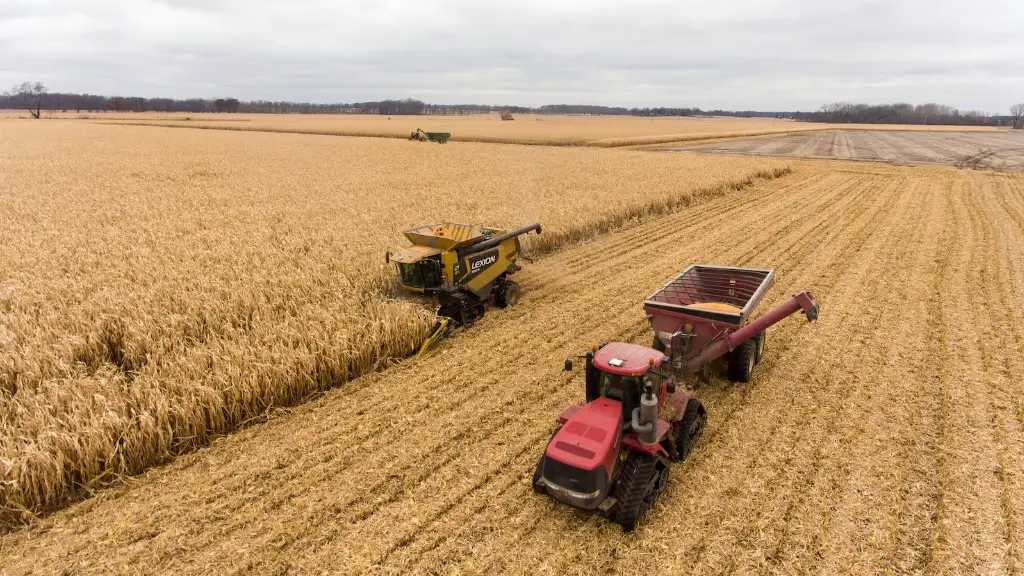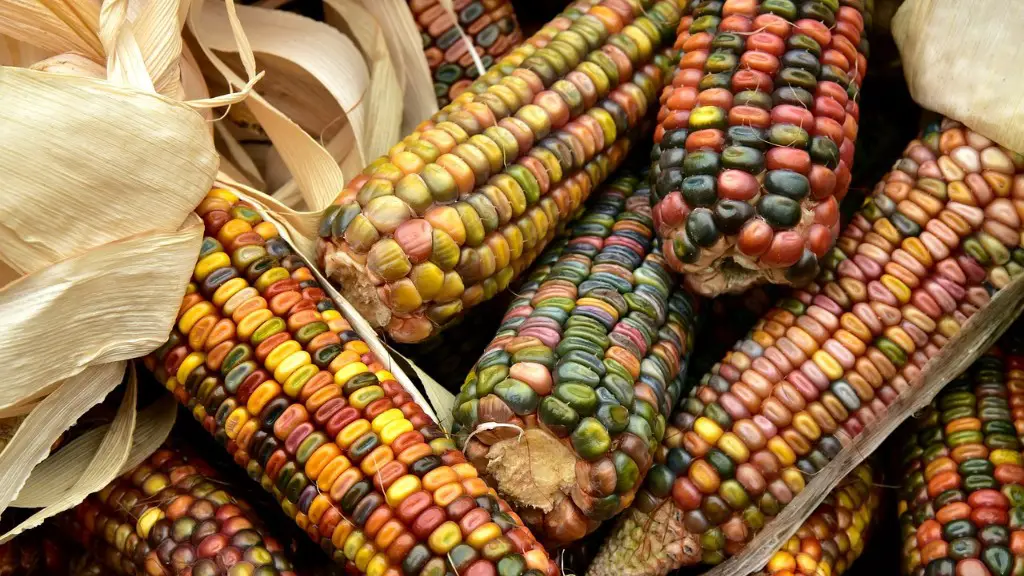The agricultural revolution was a period of time in which early man began to plant and cultivate crops instead of hunting and gathering food. This change in how early man lived had a profound effect on the world. Agriculture allowed for the domestication of plants and animals, which led to the development of civilizations. Agriculture also allowed for the growth of cities and the rise of cities as centers of trade and culture.
The domestication of plants and animals led to sedentary lifestyle and less mobile societies. This allowed for the growth of civilizations and the rise of cities. Agriculture has had a profound impact on human history.
What were the effects of agriculture on early humans?
The rise of settled societies and the increase in population were closely connected to the early humans’ ability to farm and produce enough food. This meant that they no longer had to migrate to their food source, and could instead build permanent structures and develop villages, towns, and eventually even cities.
More abundant food supplies allowed for denser populations and people became farming tied to their land. Small settlements grew into towns and towns grew into cities. Agriculture produced enough food that people became free to pursue interests other than worrying about what they were going to eat that day. This allowed for the development of other technologies and advancements in society.
How did the Agricultural Revolution change life for early humans
Big changes indeed! Once humankind learned how to grow crops and tame animals for food, they could produce a constant food supply. This allowed the population to grow at a faster rate, and as a result, nomads gave up their way of life and began living in settled communities.
The Neolithic Revolution was a major turning point in human history, marking the transition from small, nomadic bands of hunter-gatherers to larger, agricultural settlements and early civilization. This transformation had a profound impact on the way humans live and interact with the world around them, and has shaped the course of history ever since.
What are 3 effects of agriculture?
While the development of agriculture in a region has positive effects on the natural life, oxygen production and climate in the region, inorganic nitrate pollution, pesticide pollution and salinity problems can be listed as the negative effects of agriculture on the environment, especially in regions where intensive agriculture is practiced.
There is a growing body of evidence that suggests that farmers have an increased prevalence of many acute and chronic health conditions. These conditions include cardiovascular and respiratory disease, arthritis, skin cancer, hearing loss, and amputations. Other health outcomes that have been little studied in the agricultural workplace include stress and adverse reproductive outcomes.
Why did early humans turn to agriculture?
For decades, scientists have believed our ancestors took up farming some 12,000 years ago because it was a more efficient way of getting food. However, new research has suggested that the reasons for the switch from hunting and gathering to agriculture may have been more complex than previously thought. The study, published in the Proceedings of the National Academy of Sciences, found that the adoption of agriculture may have had more to do with climate change than with efficiency.
Agricultural communities are groups of people who live together and rely on agriculture for their livelihood. These communities developed approximately 10,000 years ago, when humans began to domesticate plants and animals. By establishing domesticity, families and larger groups were able to transition from a nomadic hunter-gatherer lifestyle to a more settled way of life. Agricultural communities allowed for the development of civilizations, as people were able to build permanent settlements and create complex social structures. Today, agricultural communities continue to play a vital role in societies around the world.
Did agriculture make humans shorter
The study found that hunter-gatherers were taller than those who later took up farming. This is because hunter-gatherers had a more varied diet, which was richer in nutrients. Farming led to a more sedentary lifestyle and a less diverse diet, which meant that people were less well-nourished and their growth was stunted.
The Agricultural Revolution was a period of time when humans began to cultivate their own food, and as a result, life became much more manageable. This period of time also saw the growth of human society in terms of culture and technology.
What were the 3 major results of the Agricultural Revolution?
The Agricultural Revolution was a period of unprecedented increase in agricultural production in Britain. This was due to new agricultural practices such as crop rotation, selective breeding, and a more productive use of arable land.
The Agricultural Revolution in Britain was a major turning point in the country’s history, allowing the population to far exceed earlier peaks and sustain the country’s rise to industrial preeminence. It is estimated that total agricultural output grew 27-fold between 1700 and 1870 and output per worker at a similar rate. This period of growth and development was essential in laying the foundations for Britain’s later economic success.
What is the effect of agriculture
Agriculture is one of the biggest contributors to environmental degradation. Some of the problems it causes include climate change, deforestation, biodiversity loss, dead zones, genetic engineering, irrigation problems, pollutants, soil degradation, and waste. All of these things have a negative impact on the environment and need to be addressed in order to protect our planet.
It is true that agriculture is the leading source of pollution in many countries. Pesticides, fertilizers and other toxic farm chemicals can poison fresh water, marine ecosystems, air and soil. They also can remain in the environment for generations. However, there are things that we can do to mitigate the impact of these pollutants. For example, we can use less toxic chemicals, or we can use more environmentally friendly practices.
What is the impact of agriculture?
Soil fertility is one of the five environmental effects of agriculture. It is the deterioration of the soil’s ability to support plant growth. The other four effects are eutrophication of water bodies, deforestation, climate change and pesticide pollution.
Agricultural products are the primary source of raw materials for many industries, including the production of cotton and jute fabric, sugar, tobacco, and edible and non-edible oils. These products are also essential ingredients in the manufacture of drugs, diesel fuel, polymer, and other products. Without these agricultural raw materials, many industries would not be able to function.
Warp Up
There are many ways to answer this question, but one way to think about it is that Agriculture allowed for the domestication of plants and animals, which led to settled civilizations with surplus food supplies. This, in turn, allowed for the development of cities, writing, and other advancements.
The impact of agriculture on early man was both significant and far-reaching. Agriculture allowed for the domestication of plants and animals, which in turn led to the development of civilizations. Agriculture also allowed for the growth of cities and the rise of trade and commerce. The impact of agriculture on early man was thus profound and is still felt today.




